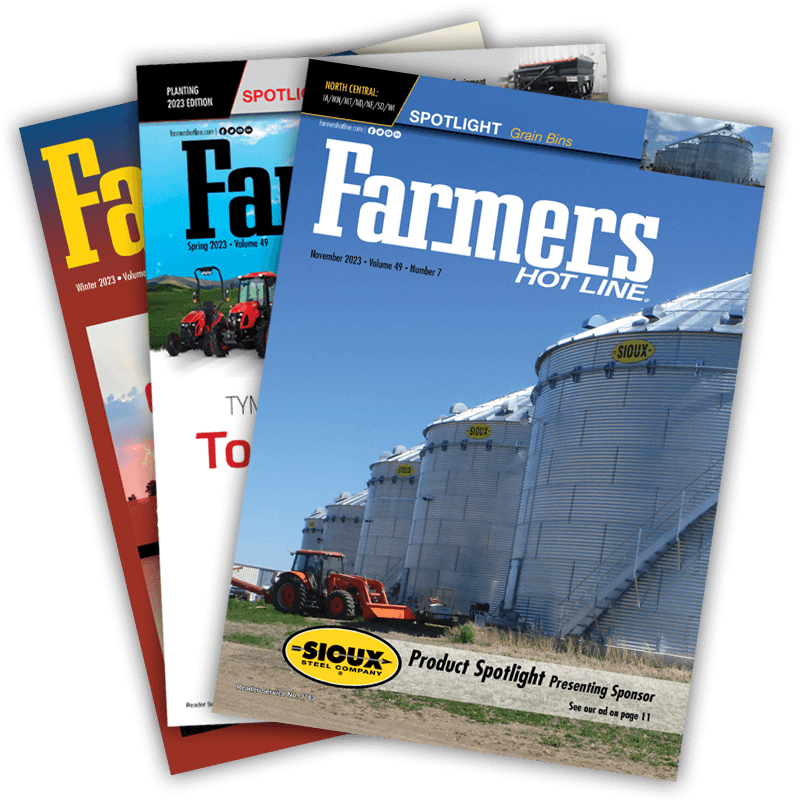Farm Life: International Year of Soils
This year the USDA is celebrating 2015 as the ‘International Year of Soils.’ According to the USDA, this year of soil awareness is aimed to increase global understanding of the importance of soil for food security and essential ecosystem functions.
Even though it is frigidly cold outside and is the dead of winter, spring planting season is right around the corner. As farmers we are always working hard to find ways to make and do things better, more efficiently, with less negative impact on the world around us. My husband, Neil, serves as co-chairman of our local watershed. The purpose of the watershed, according to the Farmer-led Watershed Council, is to work together to find ways to make farming better for the water and soil, while increasing productivity and helping everyone be more successful. Here is a video that shares a bit about the mission of our local watershed: https://www.youtube.com/watch?v=w_pUK_6xIHk.
In this video Mr. Brad Johnson is quoted saying “intense tillage reduces the productive capacity of our soil.” This is one practice that we have eliminated on our own farm. We practice what is called no-tilling or we do not plow or disc any of our cropland, and plant all of our seeds directly into the remnants of last years crop.
The picture to the right is a picture comparing tilled soil to no-till. The soil on the left is tilled, and the soil on the right is no-till and is filled with more life, more matter, and more nutrients. The soil to the left that has been tilled is clumpy, dry, and even just by looks, has seen its better days. However, the soil on the right, which has not been tilled, is more resilient allowing more for water and nutrients to be retained in the soil, thus improving the fertility of the soil and also cutting down on the erosion of the soil. In our area of our state, our fields are certainly not flat, and by no-tilling our crops we are reducing the amount of soil and other by-products that end up in our lakes and rivers. Also with more nutrients and water retention the actually crop grows much better, even during extreme weather conditions, increasing the productivity and yields by using the very same amount of land.
Economically, no-tilling makes perfect sense for our farm. We have seen a significant increase in yields and also a significant decrease in input costs by switching to a no-till method of farming on all of our farmland. By using less equipment, less fuel, and less time spent in the fields, we have been able to increase profitability and decrease our footprint on the land.
Farmers around the world have been striving to find better, more efficient farming practices and decrease their footprint on their land and the land around them since the times of the Dust Bowl. If you don’t take care of the land, just as anything else, it will certainly not return the favor.
Here are some other sources that show some more of the many ways in which Farmers all over are joining together to improve farming practices and decrease any chances of negative effects on the world around us.
- USDA Agricultural Research Service
- Horse Creek Farmer-Led Watershed Council
- On The Banks of Squaw Creek- Muddy Waters: The Battle Between Ag and Urban Over Water Quality in Iowa and Beyond
- Farm Eats, City Streets: A Different Approach to the Water Quality Debate in Iowa
Rebekah Gustafson spends her days as a mom to three horse-crazy little girls ages 2, 4, and 6, and a wife to her husband of 10 years in a small town in Northwestern Wisconsin where they were both born and raised on dairy farms. Her husband, Neil is the Service Manager for the local John Deere Dealership, and also crop farms with his father. Rebekah attended the University of Wisconsin- River Falls, and has a degree in Finance, but for now is just enjoying her time as a mom and wife.
There is never a dull moment in the Gustafson house, as the three girls keep Rebekah pretty busy with their crazy and adventurous spirits. But, she manages finds plenty of time to enjoy farming with her husband, riding horses, designing and making quilts for herself and others, and just enjoying a life filled with God's amazing grace and blessings. When she is not busy with her family or quilting you can find her working on her blog called Cooped Up Creativity, where she shares her quilts, DIY projects that she does around the house, and just a little bit of life and everything she loves.


